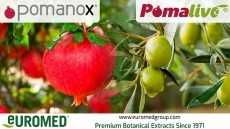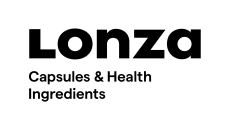Asian herb compound researched for prostate cancer benefits
The Institute, a partner of the Mayo Clinic, will receive a $1m federal grant as well as $525,000 from the National Institutes of Health (NIH).
The compound – 1,2,3,4,6-penta-O-galloyl-beta-d-glucose (PGG) – has been isolated in some Traditional Chinese Medicines (TCMs).
The project, slated to run for five years and which kicked off this month, is run by cancer biology professor, Junxuan ‘Johnny’ Lu. He said the compound had preventative potential in the prostate area. Among men, prostate is the second highest cancer killer in the US. About 29,000 Americans succumbed to it, according to NIH figures.
Worldwide, more than half a million men are diagnosed with prostate cancer every year, with over 200,000 deaths from the disease. The lowest incidence of the cancer is in Asia and the Far East, in particular India and China.
"What we hope is to prevent the cancer from ever happening," Lu said, noting high-risk men would be the first targets.
If PGG is proven effective against cancer, the Hormel Institute will engage in research to prepare for further human trials. Initial cell studies indicate the compound may have a strong cancer inhibitory effect.
Also involved in the project is professor Sung Hoon Kim, a visiting professor at the institute from Kyung Hee University in Seoul, South Korea.
Studies have shown PGG isolated from the root barks of Paeonia suffruticosa has antioxidant potential. One study found PGG dilated vascular smooth muscle and suppressed the vascular inflammatory process via endothelium-dependent nitric oxide (NO)/cGMP signaling.
Pomegranate prostate benefits
Pomegranate extracts have also been shown to be effective in battling prostate cancer. A recent study from the University of California, Los Angeles, found extracts of the fruit were associated with a two-fold suppression in the expression of genes linked to prostate cancer.
“This study showed that pomegranate products and their polyphenols reduced tumour cell growth and induced apoptosis in both androgen-dependent and androgen-independent prostate cancer cells,” wrote the authors in the Journal of Nutritional Biochemistry.
“These anti-proliferative effects were also consistent in hormone-treated cells. This implies the potential possibility that pomegranate and its polyphenols are used as novel dietary supplements with maximum potential for androgen-dependent and androgen-independent prostate chemoprevention.”
Pomegranate juice and extracts were supplied by POM Wonderful.










